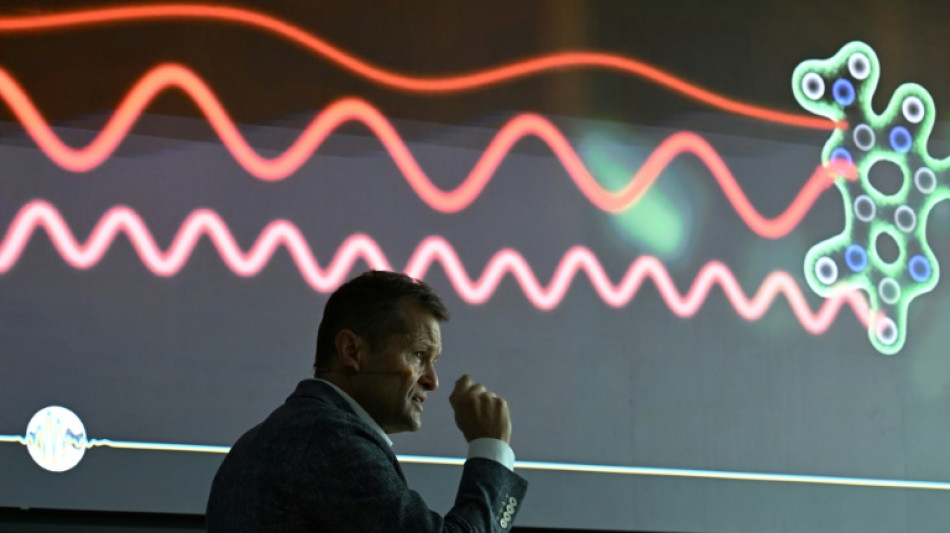
-
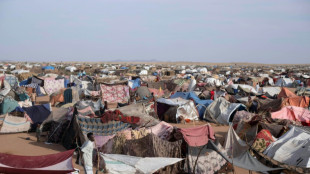 From the Andes to Darfur: Colombians lured to Sudan's killing fields
From the Andes to Darfur: Colombians lured to Sudan's killing fields
-
Eagles win division as Commanders clash descends into brawl

-
 US again seizes oil tanker off coast of Venezuela
US again seizes oil tanker off coast of Venezuela
-
New Zealand 35-0, lead by 190, after racing through West Indies tail

-
 West Indies 420 all out to trail New Zealand by 155
West Indies 420 all out to trail New Zealand by 155
-
Arteta tells leaders Arsenal to 'learn' while winning

-
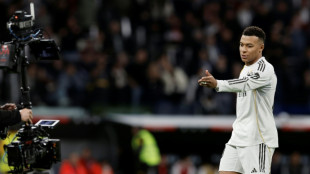 Honour to match idol Ronaldo's Real Madrid calendar year goal record: Mbappe
Honour to match idol Ronaldo's Real Madrid calendar year goal record: Mbappe
-
Dupont helps Toulouse bounce back in Top 14 after turbulent week

-
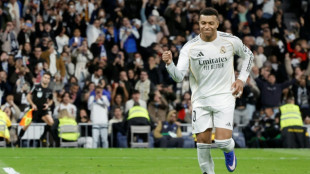 Mbappe matches Ronaldo record as Real Madrid beat Sevilla
Mbappe matches Ronaldo record as Real Madrid beat Sevilla
-
Gyokeres ends drought to gift Arsenal top spot for Christmas
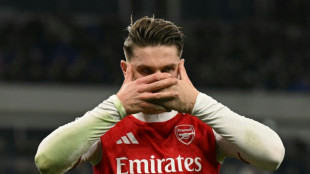
-
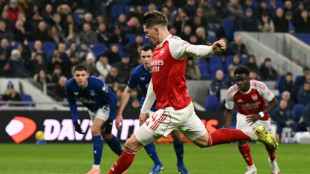 Arsenal stay top despite Man City win, Liverpool beat nine-man Spurs
Arsenal stay top despite Man City win, Liverpool beat nine-man Spurs
-
US intercepts oil tanker off coast of Venezuela

-
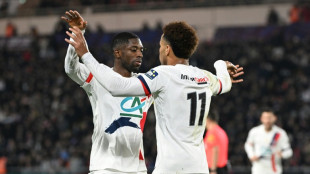 PSG cruise past fifth-tier Fontenay in French Cup
PSG cruise past fifth-tier Fontenay in French Cup
-
Isak injury leaves Slot counting cost of Liverpool win at Spurs
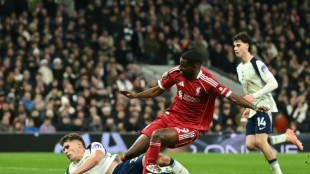
-
 Juve beat Roma to close in on Serie A leaders Inter
Juve beat Roma to close in on Serie A leaders Inter
-
US intercepts oil tanker off coast of Venezuela: US media

-
 Haaland sends Man City top, Liverpool beat nine-man Spurs
Haaland sends Man City top, Liverpool beat nine-man Spurs
-
Epstein victims, lawmakers criticize partial release and redactions
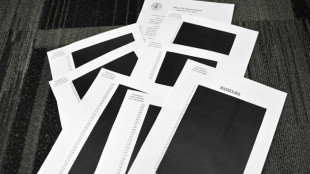
-
 Leverkusen beat Leipzig to move third in Bundesliga
Leverkusen beat Leipzig to move third in Bundesliga
-
Lakers guard Smart fined $35,000 for swearing at refs
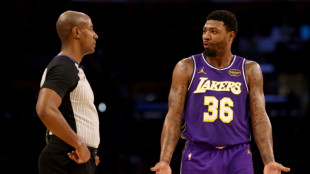
-
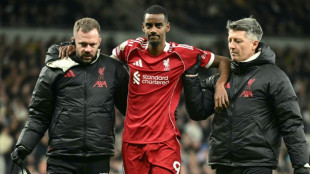 Liverpool sink nine-man Spurs but Isak limps off after rare goal
Liverpool sink nine-man Spurs but Isak limps off after rare goal
-
Guardiola urges Man City to 'improve' after dispatching West Ham

-
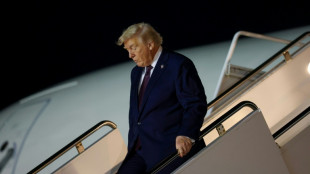 Syria monitor says US strikes killed at least five IS members
Syria monitor says US strikes killed at least five IS members
-
Australia stops in silence for Bondi Beach shooting victims

-
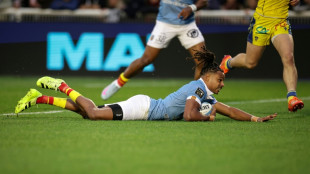 Olympic champion Joseph helps Perpignan to first Top 14 win despite red card
Olympic champion Joseph helps Perpignan to first Top 14 win despite red card
-
Zelensky says US mooted direct Ukraine-Russia talks on ending war
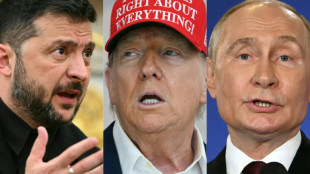
-
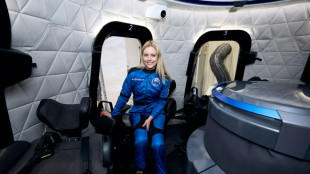 Wheelchair user flies into space, a first
Wheelchair user flies into space, a first
-
Brazil's Lula, Argentina's Milei clash over Venezuela at Mercosur summit
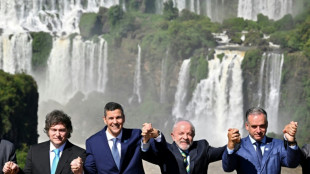
-
 Haaland sends Man City top, Chelsea fightback frustrates Newcastle
Haaland sends Man City top, Chelsea fightback frustrates Newcastle
-
Thailand on top at SEA Games clouded by border conflict
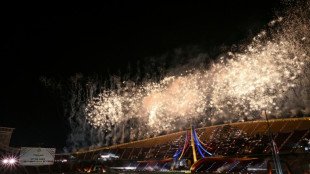
-
 Chelsea chaos not a distraction for Maresca
Chelsea chaos not a distraction for Maresca
-
Brazil's Lula asks EU to show 'courage' and sign Mercosur trade deal
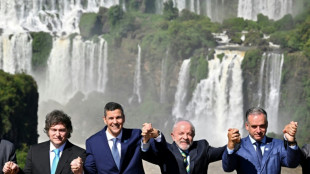
-
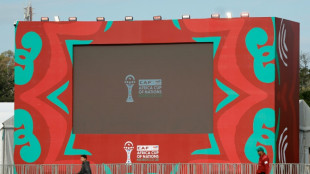 Africa Cup of Nations to be held every four years after 2028 edition
Africa Cup of Nations to be held every four years after 2028 edition
-
Zelensky says US mooted direct Ukraine-Russia talks on ending war in Miami
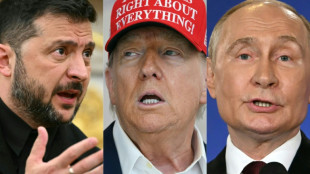
-
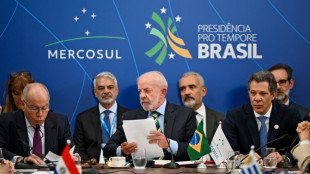 Armed conflict in Venezuela would be 'humanitarian catastrophe': Lula
Armed conflict in Venezuela would be 'humanitarian catastrophe': Lula
-
Chelsea fightback in Newcastle draw eases pressure on Maresca
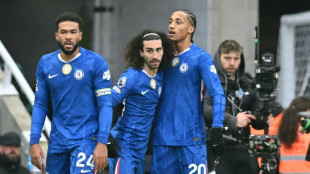
-
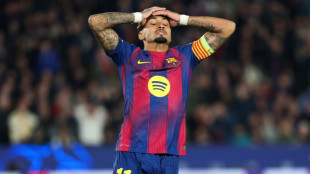 FIFA Best XI 'a joke' rages Flick over Raphinha snub
FIFA Best XI 'a joke' rages Flick over Raphinha snub
-
Swiss Von Allmen pips Odermatt to Val Gardena downhill
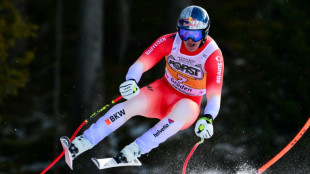
-
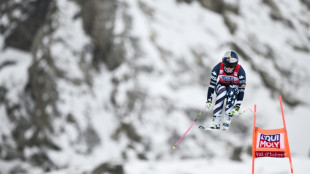 Vonn claims third podium of the season at Val d'Isere
Vonn claims third podium of the season at Val d'Isere
-
India drops Shubman Gill from T20 World Cup squad
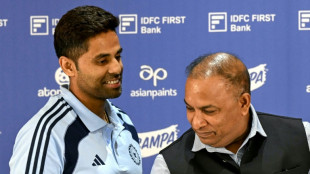
-
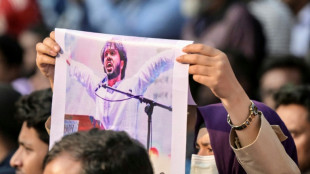 Tens of thousands attend funeral of killed Bangladesh student leader
Tens of thousands attend funeral of killed Bangladesh student leader
-
England 'flat' as Crawley admits Australia a better side
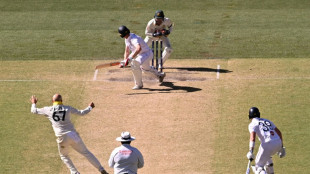
-
 Australia four wickets from Ashes glory as England cling on
Australia four wickets from Ashes glory as England cling on
-
Beetles block mining of Europe's biggest rare earths deposit
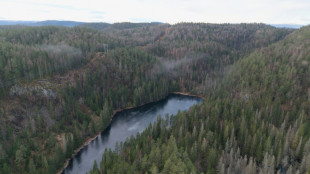
-
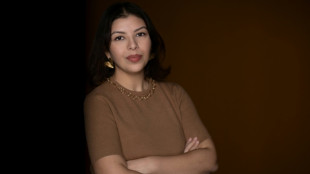 French culture boss accused of mass drinks spiking to humiliate women
French culture boss accused of mass drinks spiking to humiliate women
-
Burning effigy, bamboo crafts at once-a-decade Hong Kong festival

-
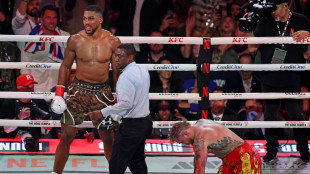 Joshua knocks out Paul to win Netflix boxing bout
Joshua knocks out Paul to win Netflix boxing bout
-
Dogged Hodge ton sees West Indies save follow-on against New Zealand
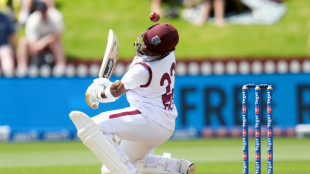
-
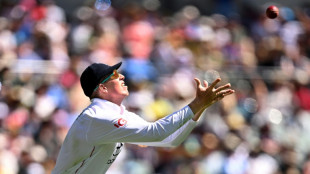 England dig in as they chase a record 435 to keep Ashes alive
England dig in as they chase a record 435 to keep Ashes alive
-
Wembanyama 26-point bench cameo takes Spurs to Hawks win


Trio wins physics Nobel for illuminating electrons
France's Pierre Agostini, Hungarian-Austrian Ferenc Krausz and French-Swedish Anne L'Huillier won the Nobel prize in physics on Tuesday for research using ultra quick light flashes that enable the study of electrons inside atoms and molecules.
Their technique employs pulses measured in attoseconds, a unit so short that there are as many in one second as there have been seconds since the universe's birth over 13 billion years ago, the jury said.
The laureates' research has made it possible to examine moves or changes so rapid that they were previously impossible to follow, with potential applications in both electronics and medical diagnostics.
The Royal Swedish Academy of Sciences likened the process to how the flapping wings of a humming bird turn into a blur for the human eye, but can be slowed and examined using high-speed photography.
"We can now open the door to the world of electrons. Attosecond physics gives us the opportunity to understand mechanisms that are governed by electrons," Eva Olsson, chair of the Nobel Committee for Physics, said in a statement.
- 'Not so many women' -
In 1987, L'Huillier "discovered that many different overtones of light arose when she transmitted infrared laser light through a noble gas," the Nobel Committee noted, adding that she has continued to explore this phenomenon, "laying the ground for subsequent breakthroughs".
In the early 2000s, Agostini and Krausz worked on experiments that made it possible to isolate light pulses that lasted only a few hundred attoseconds.
L'Huillier, only the fifth woman to be awarded the Physics Prize since 1901, is a professor at Lund University in Sweden.
L'Huillier told reporters she was in the middle of teaching a class when she received the call from the Academy, making it "difficult" to finish the class, to whom she told nothing.
"I am very touched ... There are not so many women that get this prize so it's very, very special," she said.
Before L'Huillier, Marie Curie (1903), Maria Goeppert Mayer (1963), Donna Strickland (2018) and Andrea Ghez (2020) are the only women to have won the award.
Speaking later at a press conference, she encouraged young women interested in a career in science to "go for it".
The laureate, who is married and has two sons, stressed it was possible to combine a research career with an "ordinary life, with a family and children."
L'Huillier and Krausz had been seen as contenders for the honour, having been awarded the prestigious Wolf Prize last year together with Canadian physicist Paul Corkum.
- Fellow Hungarian -
However, Krausz said he had not been expecting a call.
"I was not sure whether I was dreaming or whether it was reality," he told the Nobel Foundation in an interview.
The physicist said he had been preparing for an open day at the institute where he worked, where he was meant to hold a few lectures for interested visitors.
"It remains to be seen whether this is going to work out, but this is at least the plan," Krausz said.
The physics award is the second Nobel of the season after the Medicine Prize on Monday, awarded to messenger RNA researchers Katalin Kariko, a Hungarian like Krausz, and Drew Weissman for their groundbreaking technology that paved the way for mRNA Covid-19 vaccines.
Krausz said he had been pleased to hear of the award for his compatriot.
"I'm a great admirer of her, not just for her achievements, but also for the way she actually achieved what she achieved," he said, referring to the years Kariko toiled away at her research despite struggling to achieve recognition and even secure funding for it.
The Physics Prize will be followed by the Chemistry Prize on Wednesday, with the highly watched Literature and Peace Prizes to be announced on Thursday and Friday.
The Economics Prize -- created in 1968 and the only Nobel not included in the 1895 will of Swedish inventor and philanthropist Alfred Nobel, which founded the awards -- closes out the 2023 Nobel season on Monday.
P.Santos--AMWN



